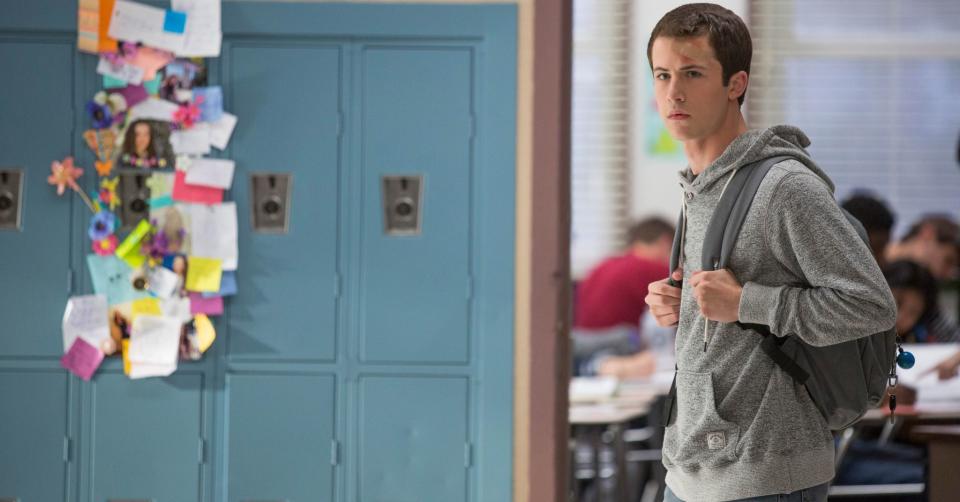A second season of 13 Reasons Why misses the point and we don't need it
13 Reasons Why was the series that got Netflix users talking, and even intensely debating, over its delicate subject matter. But that hasn’t stopped the creation of a second season.
Despite fans being divided over whether the series even warrants a follow-up season, the first continues to be troublingly polarising in how it handles, portrays, and lays blame when someone takes their own life.

Warning: season 1 spoilers to follow.
To say season one was a mixed bag is an understatement. While it handled some elements well and offered nuance in particularly delicate places, it was heavy-handed in others.
One of the biggest gripes was how it allegedly glamorised the idea of suicide itself. That’s a dangerous precedent when you’re attempting to reach out to a predominantly teenage audience, so handling a person’s actions and illustrating the consequences is of vital importance. The idea that Hannah directly linked a group of classmates to her death is also problematic in the sense that each was made to encumber the guilt of it despite having varying degrees of culpability. The way she inventively recorded tapes and made sure they were passed around further romanticised it.
One season feels enough whether that’s in a emotional sense or from a story point of view, because 13 Reasons Why was exhausting and draining the more you became embroiled in what was happening. The need to carry on the story, show an aftermath, and further our exploration into these flawed characters feels like it falls into more exploitative territory for TV than sincere.

Its first season felt self-contained. We’re taken through 13 reasons, over 13 episodes, via 13 tape sides, and we reach the end of them having heard what Hannah had to say, despite not being spoon-fed a neat resolution. Finality is simply not necessary. By what has been revealed, it’s implied that Bryce will be exposed as a rapist and that the school will bear some culpability when it comes to legally assessing who is at fault for Hannah’s death.
Is that not enough? Does the idea of a narrative extension not feel forced and, to a degree, cheap to simply appease the huge audience numbers season one attained?
It’s one thing to competently address suicide, bullying, sexual assault, and mental health, but it’s another to be using that as a means to exploit a market and profit off of it. The true intent of what the message should be could get lost in translation with the hype of season two.
What’s to say the show’s creators will even be able to handle an extension on the subject matter any more competently? The key thing here is to generate debate and awareness after watching the show. For someone to take what they see at face value, which does gloss over some aspects to formulate a teen drama, is dangerous. Perhaps season two will evoke that talk to resurface and encourage viewers to ask more questions.

For some, season one was a distressing enough ordeal, especially for anyone reliving their own personal experience with suicide. So to see it return will no doubt trigger a portion of its audience. In truth, 13 Reasons Why is educational, and more episodes would allow further insight into the victims of her guilt.
What 13 Reasons Why did do well was tackle the repercussions of Jessica’s rape ordeal and how a number of people at the centre of this cope under the severe emotional strain of what happened. The scene where Jessica confides in her dad is one of the most poignant moments of the series and should be commended for that. The part when school photographer Tyler is seen storing his guns and ammo is particularly chilling. And showing Hannah killing herself is haunting, if not debatably too graphic. To the show’s credit it doesn’t shy away from the hard-hitting crimes that take place and sends a shocking message. It needs addressing in today’s #MeToo climate, too.
While everyone’s story is not by any means concluded in the 13th episode, it would arguably be better to leave the consequences and (in)justices to our imagination, continue the discussion, and educate ourselves beyond what we are told on-screen. Seeing where these characters are at some point in the future may seem novel but that’s the problem; the topics of suicide and rape are something to be taken seriously and not hotly anticipated by a fictional depiction that can appear as just that in a TV show.
Read more:
Game of Thrones season 7 is its most problematic yet
Big Little Lies deserved to sweep up at the Golden Globes
Black Mirror season 4 is a mixed bag of episodes

 Yahoo Movies
Yahoo Movies 
